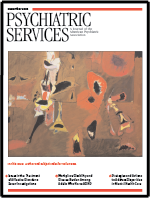The Lost Mother
A New York Times critic has called Mary McGarry Morris one of the most skillful writers in America today. Her work has been compared to that of John Steinbeck and Carson McCullers. Like the works of these authors, The Lost Mother is set in the great depression of the 1930s. It was a time when there were no jobs, no government welfare, and no crop loans. Poverty and hopelessness frayed the threads that held communities together and stressed families to the breaking point.
During these hard times, a mother deserts her family and ceases all contact with her children. Her proud and angry husband, barely able to provide basic sustenance, is determined to raise his children alone and rebuffs offers of help. Living in squalor, the children inevitably blame themselves for the loss of their mother, whom they believe to be good because she is beautiful. The deserting mother becomes idealized, the desperate father demonized.
The mainstay of the novel is a strong brother-sister bond and a father whose fierce love for his children cannot prevent the cruel events that lead to the family's dissolution. The father, unjustly accused of a minor crime, is in jail. The children, aged eight and 12, go looking for their mother with fantasies of happy reunion.
The mother is portrayed as a frightened, dependent woman who cannot cope with the demands of parenting, nor even of maintaining employment. The thought of reunion with her children is experienced not as joyous, but as threatening to her newfound security as the mistress of a wealthy man. She projects her inadequacies onto her rejected husband. But there is no easy remedy for the anxieties that compel her to sever all connections with her children, whom she clearly once loved. Desperately seeking alternative caregivers, she is willing to place them in an orphanage, have them adopted by others, and never see them again.
This novel will be of particular interest to those who work with children and families. It is exceptional in its depiction of how children interpret adverse events, invent rationales for adult behavior, endure uncertainty, and erect protective shields of silence. Unable to distinguish between disclosures that may be harmful or helpful, they deliberately withhold information that may be essential to their cause. They continue to fantasize that the lost mother will redeem their lives and forgive the deficiencies that led to their rejection. Yet from their ability to overcome unimaginable hardships, from near starvation to serial betrayals by adults, we see the adaptive strengths of children who share a sibling bond and have been nourished by the love of at least one parent.
This is a story rich in psychological insights. In portraying the trauma of child abandonment, the texture of parental anxieties, children's magical attributions and unique reconstructions of hurtful realities, and the dimensions of their resilience, this book will be of considerable interest to psychiatrists and could provide excellent material for clinical training.
Dr. Lefley is a professor in the department of psychiatry and behavioral sciences at the University of Miami Miller School of Medicine.



